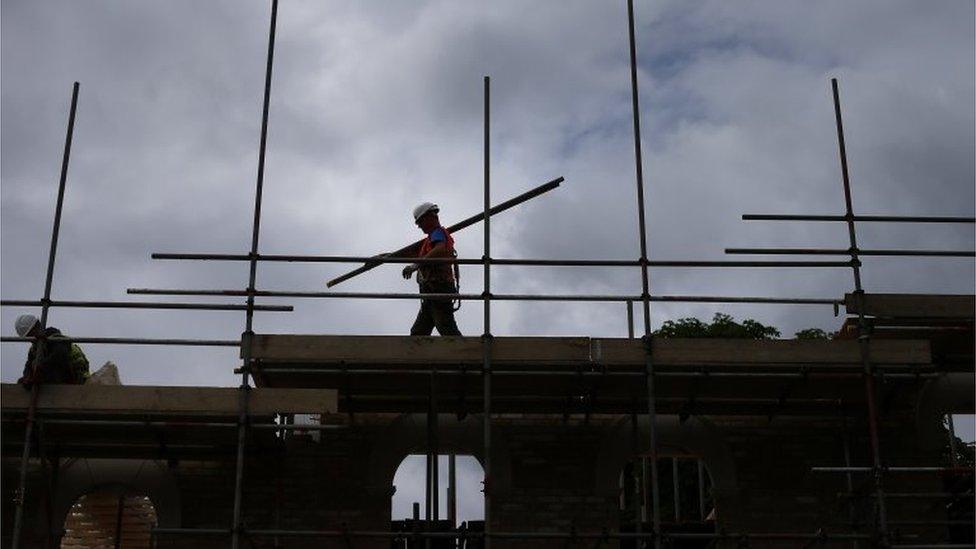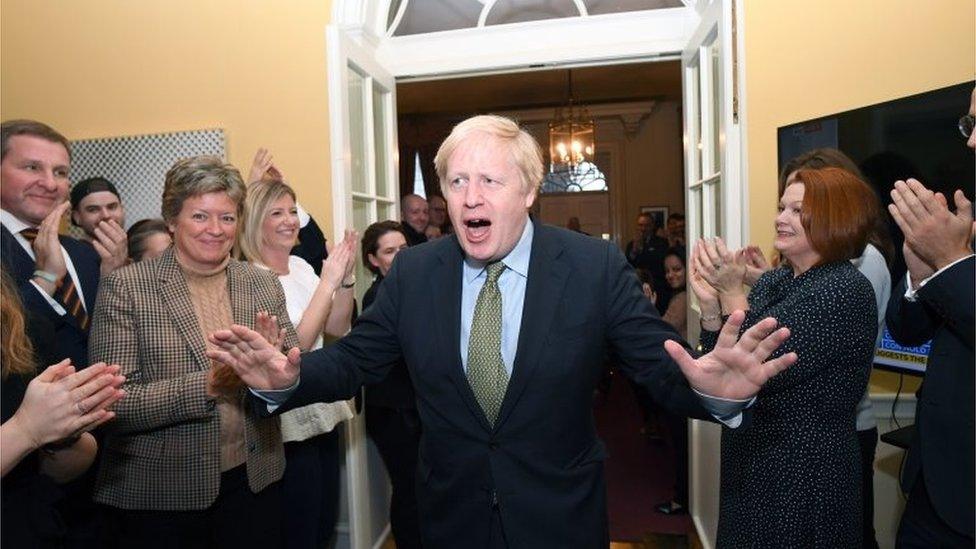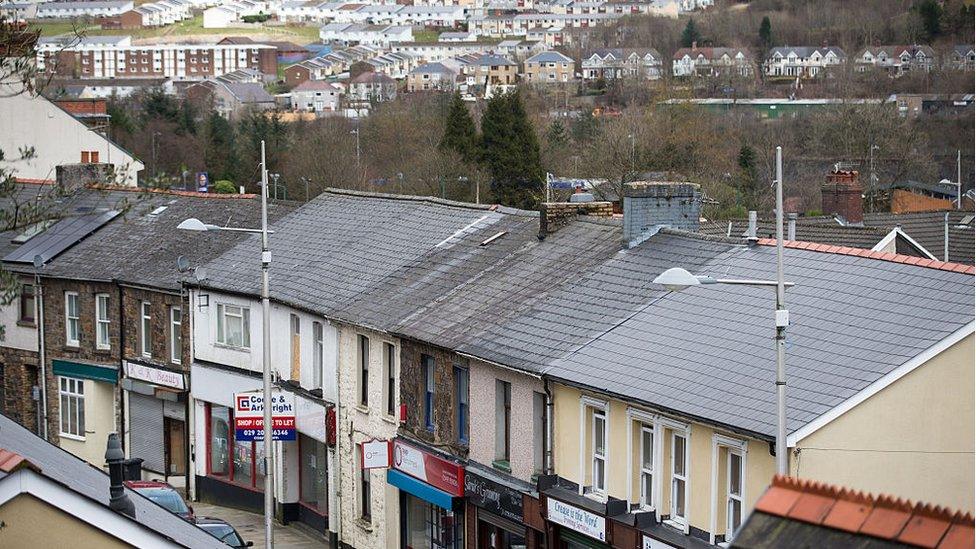Conservative MPs launch 'levelling up' taskforce
- Published
- comments

Conservative MPs have launched a taskforce to "spearhead" government efforts to reduce regional inequality.
The new group says boosting "Britain's lagging areas" is "critical" to the party's future election prospects.
A report produced for the taskforce says Conservatives now hold more seats in the lowest paid areas than Labour.
Deputy Labour leader Angela Rayner has said "the Tories talk a good game... but their record of turning their backs on the North speaks for itself."
In the 2019 election the Conservatives won a number of seats across the Midlands and the north of England previously considered to be Labour strongholds, also known as 'the red wall'.
As part of the "levelling up" agenda the government says it wants to reduce regional disparities in the country - a message particularly targeted at those constituencies that turned Conservative in the last election.
Now this new group, the "levelling up taskforce" - which includes many of the new "red wall" MPs - is urging the government to set itself three key tests as part of its drive to reduce geographical inequality.
It says those areas that have seen the lowest growth in earnings, should see earnings rise faster than they have in recent years; areas with the worst unemployment rate should converge with the national average; and areas with the lowest employment rate should also catch up with the national average.
It also calls on the government to set out geographical analysis of how tax and spending changes impact different areas.
There have recently been reports of nervousness among Tory MPs about possible tax rises and on Wednesday Chancellor Rishi Sunak sought to reassure his party that there would not be a "horror show of tax rises with no end in sight".
Analysis produced by the Onward think tank for the new group found that of the bottom quarter of seats in Britain with the lowest earnings, more are now held by the Conservatives (77) than Labour (74).

Boris Johnson's election victory saw the Conservatives win in several former Labour strongholds
It also said that the UK was "one of the most geographically unbalanced developed economies" arguing that "in Germany 12% of people live in areas where the average income is 10% below the national average, while in the UK 35% do."
And it highlighted that while in 2004 London's economy was the same size as the north of England, it had now grown to be a quarter larger.
A recent report by the Institute for Fiscal Studies argued that geographical inequalities in earnings and household incomes have in fact fallen since the early 2000s.
'Hammer forward'
Jo Gideon, MP for Stoke-on-Trent Central and a member of the taskforce, said: "There is a lot of untapped potential in parts of our country that have felt left behind for a long time. Now is the time to really hammer forward with the levelling up agenda."
Speaking in July, Ms Rayner warned that the economic downturn caused by coronavirus must not "increase the gap" in income and wealth between the north and south of England.
She argued that the government's stamp-duty holiday policy would help people in London more than those anywhere else.
Related topics
- Published3 August 2020

- Published27 February 2020

- Published11 July 2020
